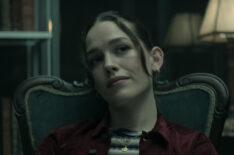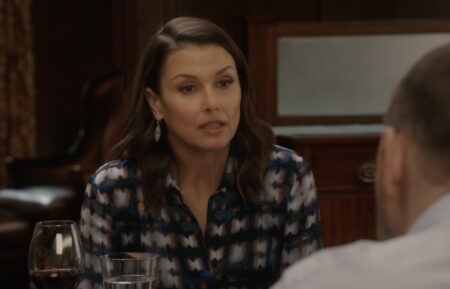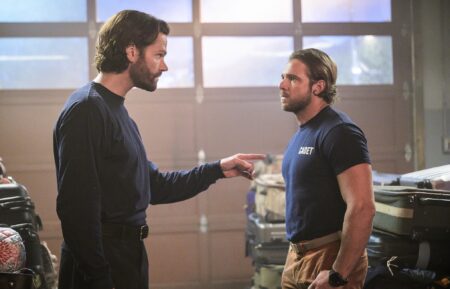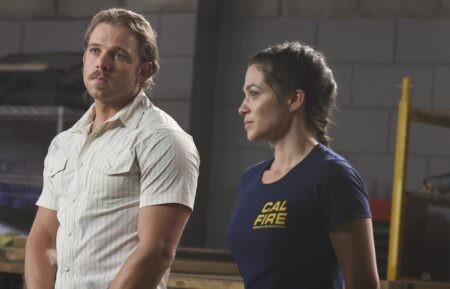‘You’: How Long Was Marienne In the Cage? Tati Gabrielle Explains Her Part 2 Comeback
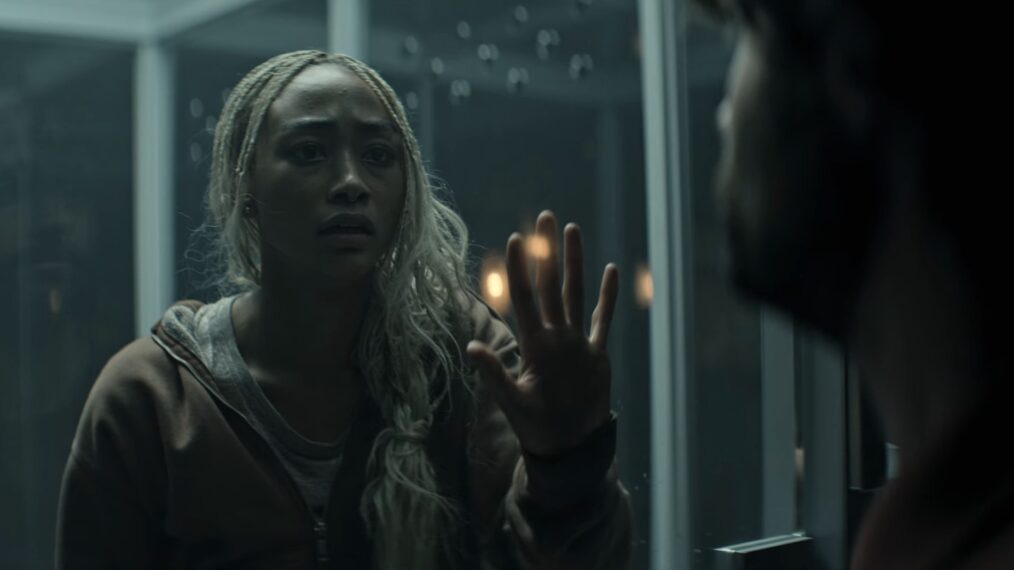
Spoiler Alert
[Warning: The following contains MAJOR spoilers for You Season 4 Part 2.]
You Season 4 Part 1 felt like a lot of the same things we’ve seen across the series. But You Season 4 Part 2 flips it all on its head, making for a narrative reset for the Netflix obsessive hit.
Penn Badgley‘s Joe Goldberg (disguised as lit professor Jonathan Moore in his new London digs) takes a long, honest look at himself in the mirror for the first time in the fourth season’s second half, streaming on Netflix as of March 9. And he doesn’t like what he sees, mainly because his metaphorical reflection isn’t his own face, rather Rhys Montrose’s (Ed Speleers). Joe’s declining mental state took the mayoral candidate’s likeness and projected him as a figment of his imagination. Rhys was the “physical” manifestation of Joe’s serial killer side, which helped him forget that he was the real Eat the Rich Killer all along.
All of Season 4’s murders were committed by Joe, but he forgot about them all in his dissociated state. The shock of the season was when viewers learned that Joe didn’t let Marienne Bellamy (Tati Gabrielle) go when she was briefly in London.
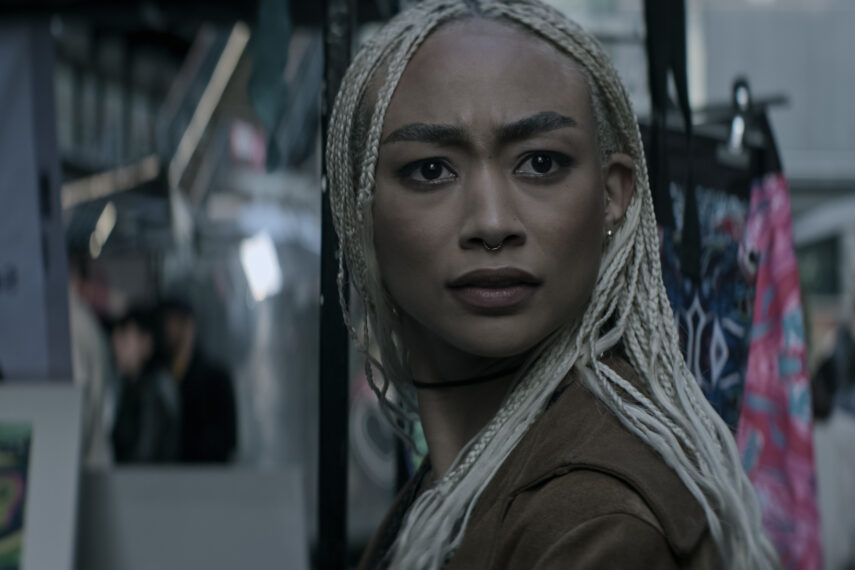
Netflix
In reality, he drugged and kidnapped her, and she eventually wound up in the cage where she would remain for weeks without food or drink. The torturous time is documented in You Season 4 Episode 8, which is narrated by Marienne as she fights to survive and make it back to her daughter.
Through the help of the savvy Nadia (Amy-Leigh Hickman), Marienne was able to escape confinement — one of the few people in the series to do so. Here, Gabrielle breaks down her behemoth comeback episode to TV Insider, from the difficulties of adjusting to the cage to her predictions for Marienne’s future.
You’re largely alone in this episode and having to go through such a range of distressing emotions. What was the hardest part of that episode for you?
Tati Gabrielle: I think the hardest part was one, yeah, just being alone. It was my first time just as an actor having to do essentially a one-person show and having to carry a story by myself. I wanted to make sure that that range of emotion was as colorful as possible so that you could still be entertained by watching a person in a box for 20 minutes. Another challenging part was blocking out her time in the cage. She was in there for about 30 days, is what we had talked about, Sera [Gamble, creator and showrunner] and I.
Thirty?! Oh my god.
Yeah, 30 days. So it would’ve been essentially from the time that Joe went to Hampsie House, he had left her there alone. I did a lot of research on solitary confinement and what happens to a human mind when in solitary confinement for however long of time. We made a timeline. Sera and the writing team gave me a timeline like, “this scene is day 10, this scene is day 14.” We took that and figured out which emotion went with each scene and wanted to make sure every single one of those was different. Wanting to also feel out the space and make the most of the space itself — though it is a small box, there are many corners — and trying to find new ways to utilize the space around me [was another challenge]. Those were some of my hardest parts.
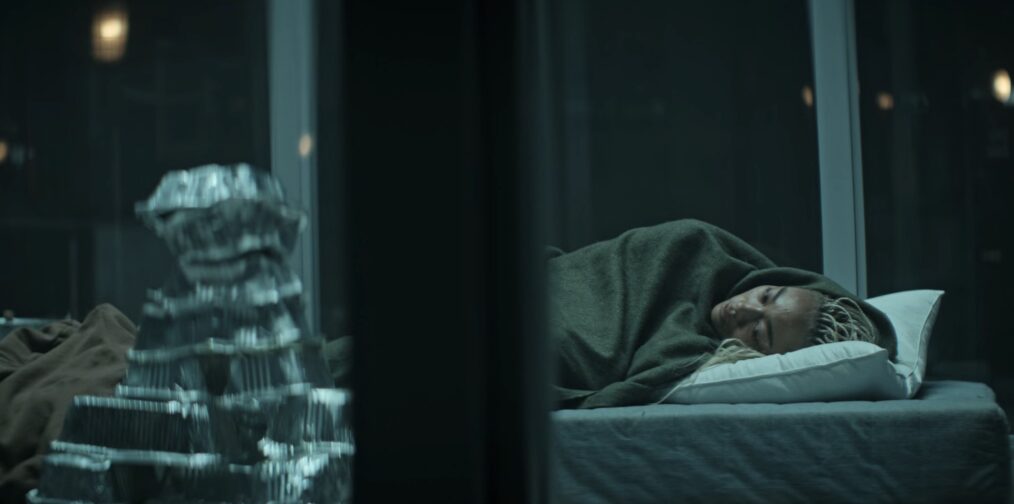
Netflix
There’s something weird about the cage where it feels big when scenes are happening inside of it, but then when you’re on the outside of it, you can see it for how small it really is. Somehow it feels large when you’re in the POV standing inside it.
I think it’s because usually when you’re inside, you can see the reflections off of the other windows. So even sitting in it, in some ways, it is enclosing. But it also feels like you’re in your own little mind palace.
My first time in the cage, about a week before we started filming all of the cage stuff, I got the worst anxiety attack basically just standing in the cage for about 30 seconds. Immediately, for some reason, my body had this sort of trauma response to just stepping in it. I was like, “Whoa. OK, cool. Won’t be in here ’til I gotta be.” I think that had to do with just the thoughts I had around Marienne already. But then, once I spent the two-and-a-half weeks [filming] in there, I was so comfortable in it. [Laughs] It literally became my own little house. I would sit in there all day, would not come out in between takes. I felt safe. [Laughs]
How long were your stretches of time in the cage on set?
In a day? Anywhere from six to 11 or 12 hours.
OK. So if it was a cell shoot day, you’d really be in it for the day?
Yeah. Like when we were shooting Episode 8, there were several days of just me all day in the cage.
That’s a lot. How would you come down from that emotionally afterwards? Because your body can’t tell the difference between fantasy and reality, you know?
Exactly. Most of the time, I just kind of waited until the end of the day [to leave the cage set]. I’m not a person that can jump in and out of emotion if I do have to do that emotional day, especially if it’s a deep or very charged one. So I would kind of sit in there the whole day. I loved our crew so much. They were so supportive of me during that time. Nobody would really come in the cage in between takes unless they absolutely needed to, or more unless they were coming in to reset cameras. They just let me exist in this emotional space, so I gave my body and my mind a chance to just sit in it.
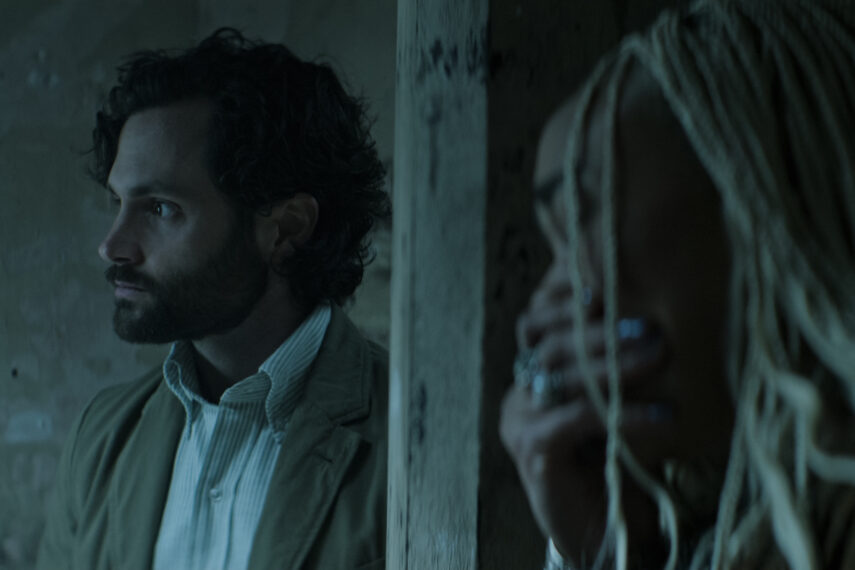
Courtesy of Netflix
At the end of the day, I would go back to my trailer for a minute. I have a lot of coping mechanisms from therapy. I’m just like, you know, reminding myself that that was not my reality, trying to reinitiate my body with the actual physical reality around me.
I did have one day where I had an emotional breakdown. Everybody understood. I stepped outside, they brought me juice, and I just sat outside for a while just to breathe. I do a lot of taking in of the physical environment to try to reset my body and my mind to know that this is what’s real, that’s not.
Did you know what would happen to Marienne in Season 4 when you signed on for Season 3?
No, I did not know. I don’t even know how far along they were in the process of developing Season 4 when I started Season 3. I just knew that I would be on board for Season 4, but I didn’t know what the story was.
What was your reaction when you found out what it would be?
I was excited! When I had a phone call with Sera, like three months before we started, and she was like, “So you’re gonna be in the cage this season,” I was like [excited screams in silence]. Probably not a healthy reaction, but yeah.
Season 4 really feels like a reset for the series. We’ve watched so many women fall victim to Joe, even though these are very capable, smart people. But he’s just that twisted. So Marienne escaping feels like a really key game-changer. Do you think that Joe should die by the end of the series?
I don’t think that Joe should die at the end of the [series] because I think that’s too easy of an escape. It’s too easy of a punishment. I feel like that’s what Joe even wants, like he would prefer to die than to be locked up in jail, in a cage somewhere, and put in solitary confinement. But I think that’s what Joe deserves, having to sit with it.
In my life in general, I’m not a punitive person. I think that if somebody does something to me and I respond to them with kindness, the guilt that they’re gonna feel from the fact that I didn’t respond back with the same aggression will be [more] punishment than I ever could with one or two words of malice. They could use those words of malice to justify themselves, and then they’re off about their day. So I feel that, especially with how much of a thinker Joe is, it would eat him alive. I think that’s a more fitting punishment.
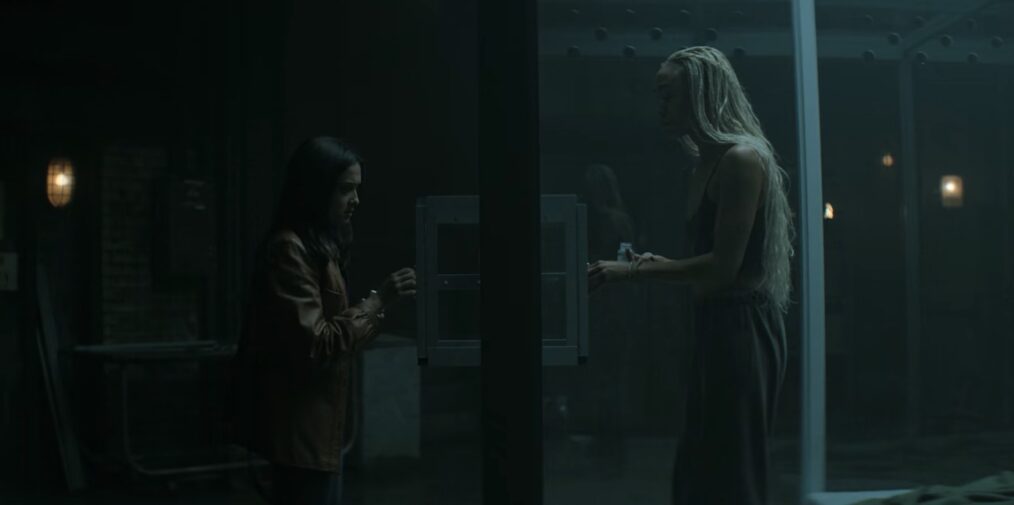
Netflix
For me, I don’t trust that he wouldn’t break out of prison. [Laughs] But if he is to die, how would you feel if Marienne was the one to kill him? Because in the finale, it seems like she’s safe with her daughter, but then she sees The Cut interview with Joe and Kate [Charlotte Ritchie] and is like, “Oh, no, no, no. I must fix this.”
I also don’t think that Marienne is a vengeful person, but I do think she will absolutely seek justice and find a way to take Joe down. I would love to have her be the one that gets him put away. Even if it’s not prison. Even if you lock him in one of those big shipping containers and put him on a boat and sail it out to sea — now that’s it! He’s done. But yeah, I don’t think it sits right with her. I don’t think she’s satisfied by any means.
Marienne is the latest character to be trapped in the cage. What changes, if any, did you want to bring to your rendition?
The biggest change was actually given to me. It was the fact that Marienne is the person who has been in the cage the longest out of all the people who have been there. So that already in itself presented me with the opportunity to have time on my side, as far as what I can show, because somebody being trapped in a space for a week is very different than somebody being trapped in a space for a month.
Without food, too.
Exactly. I thankfully was given elements and tools to be able to utilize. And then I just wanted to identify the emotions we hadn’t seen previously in the cage and try to sprinkle some of those in as well.
And then poor Nadia! She helps you get out of all of this. She’s like a mastermind of the season. She teaches Joe about whodunnits, he flips the script on her and betrays her. But I love that she gets Marienne out safely. I imagine part of Marienne seeking justice will include helping the imprisoned Nadia?
Oh, absolutely. Just in terms of “you’ve done so much for me, of course I’m going to give back,” but I think, too, from the standpoint of Marienne being a mother. Though Nadia is not young enough to be Marienne’s child, she’s still a child to Marienne. So I feel like just from a mother’s perspective, it would be like, “No, she needs to be helped. We can’t leave her in there.”
You Season 4, Streaming Now, Netflix


